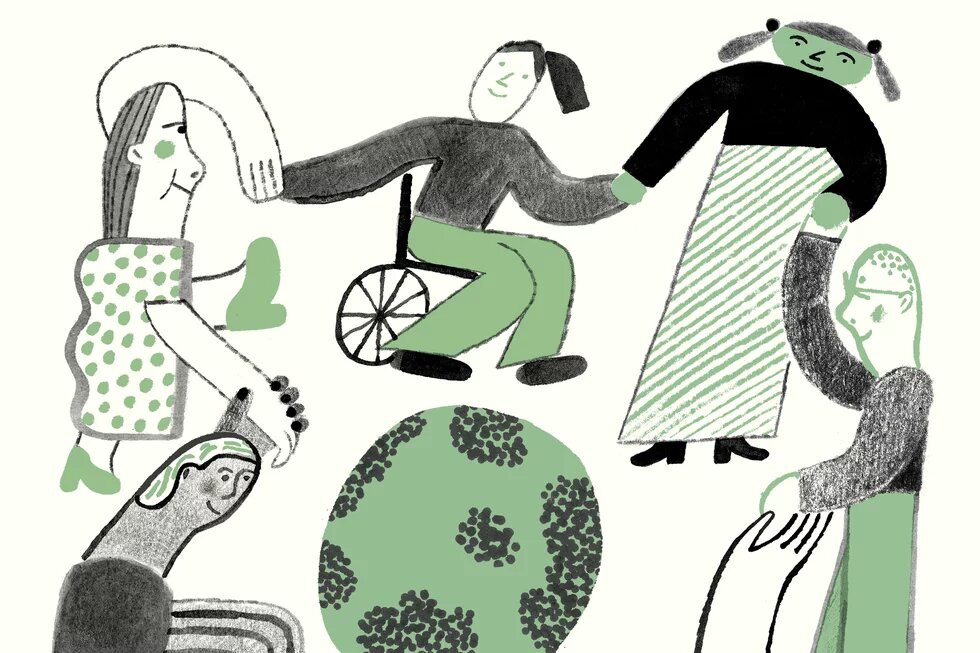With recent security tensions, including the July 2025 border skirmish with Thailand that displaced tens of thousands and prompted the return of nearly one million Cambodian migrant workers, the urgency for a coordinated national approach on Women, Peace and Security (WPS) has become more pressing than ever. This article examines the significance of the National Action Plan (NAP) on WPS for Cambodia, the opportunities and challenges for civil society organizations (CSOs), and pathways to strengthen CSO resilience for inclusive and effective WPS implementation.

What a Standalone NAP-WPS in Cambodia Signifies
Cambodia’s contemporary history has been profoundly shaped by prolonged periods of war, genocide, and political instability. From 17 April 1975 to 6 January 1979, a genocide took place in Cambodia under the Khmer Rouge regime, resulting in the deaths of approximately one third of its population. Although women comprised 60–64 percent of the genocide survivors and played vital roles in rebuilding the country, their contributions to peace and security were largely overlooked in formal processes, including the 1990s peace negotiations. Nonetheless, many CSOs emerged through women’s leadership and became women-led organizations, playing significant roles in the peace process and reconstruction of the country that continue today.
Since the early 1990s, women-led civil society organizations actively engaged and lobbied through efforts, such as the 1993 National Women’s Summit and the 1995 Beijing World Conference on Women. These efforts contributed to the establishment of the Secretariat of State for Women’s Affairs in 1993, later elevated to the Ministry of Women’s Affairs in 1996, and the Cambodian National Council for Women (CNCW) in 2000. Instead of having a dedicated strategic plan to address WPS issues, Cambodia has since opted to integrate women’s rights norms, address violence against women, and promote gender equality in its legal system and national policies. While these policies reflect progress, they lack a unified strategic vision for WPS.
Over these past 25 years, such piecemeal approach has led to a limited understanding of the WPS agenda, weak policy coherence, a tendency to treat WPS as peripheral to national priorities, and inadequate resource allocation as WPS is seen as “an add on”. As of now, Cambodia remains among the 45 percent UN members yet to adopt a NAP-WPS. However, this approach is particularly incongruent with Cambodia’s active role in advancing WPS regionally and internationally. Cambodia is a key-actor contributing to the adoption of the Regional Plan of Action on Women, Peace and Security (RPA-WPS) and serving as the inaugural chair of the ASEAN Advisory Group on WPS in the development of its localization toolkit and guidelines. Cambodia is also a leading contributor to UN peacekeeping missions, ranking third among ASEAN member states and 28th globally in uniformed personnel deployed.
The success of a comprehensive National Action Plan on WPS depends on inclusive development and the meaningful engagement of civil society.
Only in 2024, Cambodia pledges a commitment to developing its first NAP-WPS in 2024 through its National Strategic Plan for Gender Equality and Women’s Empowerment 2024-2028 (hereinafter called Neary Rattanak Strategy), marking a critical step forward. This strategy identifies CSOs as “relevant partners” in the NAP-WPS consultation process, an approach consistent with over 72 percent of globally adopted NAPs that acknowledge CSO engagement. Yet, as of September 2025, progress remains unclear, with no public updates on NAP-WPS beyond its 2024 situation analysis.
The urgency for a coordinated national approach to WPS has intensified following the July 2025 border skirmish and ongoing tensions with Thailand, which displaced tens of thousands and triggered the return of nearly one million Cambodian migrant workers. These developments, alongside transitional justice and genocide prevention efforts, underscore the need for a comprehensive NAP-WPS. Such a plan would address structural gender inequalities, institutionalize women’s roles in peacebuilding, and strengthen Cambodia’s capacity to respond to evolving security challenges. Its success, however, will depend on inclusive development and the meaningful engagement of civil society.
Civil Society Is Committed to Advancing Women, Peace, and Security
CSOs have long been central to Cambodia’s development and peacebuilding efforts since the 1990s. As the country moves toward adopting its first NAP-WPS, CSOs are poised to play a transformative role in ensuring the plan is inclusive, locally grounded, and effectively implemented. CSO can take on an instrumental role in localizing the WPS agenda and to amplify the voices of women and girls in all their diversity in the development, implementation, and monitoring and evaluation of the NAP-WPS. Their proximity to communities allows them to better bridge the gap between broader aspirations of top-down policy frameworks and the grassroots reality, which is critical given the compounded challenges faced by marginalized women and girls. For example, indigenous women often experience forced displacement due to land concessions and hydropower projects 1, while Khmer Islam women face language barriers and restrictive social norms that limit mobility and access to services. Early marriage remains widespread among indigenous and minority groups, perpetuating cycles of poverty and vulnerability to gender-based violence. Despite women comprising over half the population, representation in leadership remains low, 13.6 percent in national assembly, 10.34 percent as ministers, 8 percent as provincial governors, 3.43 percent as municipality/district governors and 10 percent as commune chiefs.
CSOs proximity to communities allows them to better bridge the gap between top-down policy frameworks and the grassroots reality.
In addition, CSOs can play a mediating role, fostering understanding and ownership of the WPS agenda through creative awareness raising and community mobilization efforts. Noticeably, feminist peacebuilding organizations, in particular, can provide critical contributions through equipping local actors, including the authorities, with the knowledge and tools to engage effectively in WPS processes on the ground. Most importantly, another critical role of CSOs lies in its potential value added to engage in monitoring, evaluation, and learning (MEL). Their involvement in this aspect helps to ensure accountability and assess whether the NAP-WPS is effectively addressing the peace and security needs of diverse women and girls. Through their grassroots networks, CSOs can also identify emerging traditional and non-traditional security threats, either through their evidence-based studies or consultative engagements with grassroots affected communities, contributing to adaptive and responsive policymaking. The inclusion of such important community-level stakeholders can strengthen the ecosystem of actors who can collectively advance WPS goals.
CSOs Are Considered Co-Creators of Peace but Face Growing Challenges
The inclusion of NAP-WPS in Cambodia’s Neary Rattanak VI Strategy offers CSOs a formal platform to shape inclusive peacebuilding. It provides a unified policy framework that broadens the concept of peace beyond the typical assumption of the absence of war, embeds gender-responsive approaches, and aligns fragmented efforts across government, civil society, and development partners. By fostering structured dialogue, clear roles, and accountability, the NAP-WPS, although not a one-size-fits-all solution, enables CSOs to move from observers to co-creators of peace and security, leveraging their community ties and expertise to ensure policies reflect local realities. This collaborative model strengthens coordination, resource allocation, and monitoring, while promoting trust and shared responsibility for sustainable peace.
Meanwhile, despite these prospects, CSOs in Cambodia face significant challenges limiting their full potentials. First and foremost, according to the 2024 CIVICUS Monitor, Cambodia’s civic space is rated as “repressed,” scoring only 27 out of 100. The report on the situation of human rights in Cambodia in 2025 also highlights the use of restrictive laws, censorship, and arbitrary detentions targeting human rights defenders, environmental activists, and independent media. This shrinking civic space undermines the ability of CSOs to engage meaningfully in policy processes, including WPS, which can then lead to mistrust and exclusion from formal decision-making platforms.
The shrinking civic space undermines the ability of CSOs to engage meaningfully in policy processes, which can lead to mistrust and exclusion from formal decision-making platforms.
Compounding this is the decline in international development funding for civil society. For instance, the 2024 phase-out of Swedish development aid, which previously supported human rights and democracy initiatives, has left many CSOs scrambling for alternative resources. Similarly, the sudden suspension of USAID funding in February 2025 has disrupted critical programs across the globe. In Cambodia, for instance, USAID has historically been one of the largest bilateral donors, contributing over 3 billion US dollars since the early 1990s to sectors such as democracy, governance, demining, and public health. The abrupt halt in funding has led to program suspensions, NGO layoffs, and stalled initiatives in media, mine clearance, and community health. This cut has also triggered a domino effect among other major donors amid growing backlash and anti-gender equality narratives. Countries across the OECD’s Development Assistance Committee (DAC), including the UK, France, Germany, Sweden, and the Netherlands, have announced significant reductions in their aid budgets. Since CSOs in Cambodia rely heavily on international donors, the funding cuts and scaling back pose a serious threat to their sustainability and continued existence.
Noticeably, some CSOs in Cambodia lack the technical capacity to engage effectively with the WPS agenda, including competencies in gender responsive peace and security analysis, policy engagement, and strategic communication, which limit their influence. Without targeted capacity-enhancement, CSOs might struggle to translate grassroots insights into actionable policy recommendations or to participate substantively in complex policy dialogues on WPS.
Cambodia Seeks a Way Forward
Cambodia stands at a pivotal moment. The development of its first NAP-WPS offers an unprecedented opportunity to institutionalize gender-responsive national peace and security framework. CSOs, as connectors between policy and community, are indispensable to these processes. As a way forward to address the above-mentioned challenges and maximize prospects for CSO engagement, concerted efforts and enabling conditions are critical and need to be realized. First, ensuring a conducive environment for CSO functioning is essential to realizing their potential in advancing the WPS agenda. In particular, formalized multi-stakeholder platforms for WPS coordination must recognize and include CSOs, especially, feminist, peacebuilding, and rightsholder-led organizations, not as token participants but as equal partners throughout the processes. Equally important is to safeguard civic space; without it, meaningful participation is impossible. Furthermore, dedicated resources should be allocated to support CSOs in implementing innovative WPS initiatives and engaging in policy processes, including funding for grassroots activities, technical support, and mechanisms for inclusive dialogue.
CSOs need to maintain strong grassroots constituency, expand networks and partnerships, and foster cross-sector solidarity among key stakeholders.
Concurrently, to remain relevant, significant, and impactful in Cambodia’s evolving and often challenging political economy landscape, sustained supports are needed to strengthen CSO resiliency. This requires fortifying CSO adaptability through, for instance, investments in constant political-economy analysis, strategic communication and response, and inter alia, policy engagement skills. Additionally, enhancing supports to CSOs to produce and apply evidence-based research is crucial to enable CSOs to move beyond anecdotal advocacy and contribute substantively to national dialogues. Particularly, CSOs need to foster a robust internal governance and a “do no harm” approach in its WPS engagement in order to reinforce its legitimacy and effectiveness. Finally, to further amplify its influence, CSOs need to maintain strong grassroots constituency, expand networks/partnerships, and foster cross-sector solidarity among key stakeholders. Taken together, these efforts will enable CSOs to navigate uncertainty, respond to emerging peace and security challenges, and continue to play a central role to contribute to the effective and comprehensive development, implementation and monitoring and evaluation of the NAP-WPS.
Footnotes
- 1
Ministry of Women’s Affairs (2024) “Draft Situation Analysis Report on Women, Peace and Security in Cambodia”. Unpublished version 3 as of 19 November 2024.

